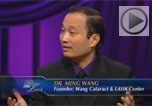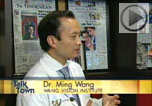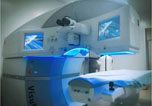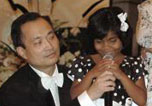- Over 55,000 LASIK and cataract procedures (including on over 4,000 doctors)
- The FIRST center in TN to offer Laser Cataract Surgery
- Introduced bladeless all-laser LASIK to the state
- Implanted the state's first FOREVER YOUNG™ Lens
- The first surgeons in the US to perform a new Intacs surgery to treat keratoconus
- Helped patients from 40 states and 55 countries
- International referral center for cataract surgery and LASIK complications
- Read Dr. Wang's book: LASIK Vision Correction
Why did you decide to have LASIK? Why did you choose Dr. Wang? How has your life changed since your LASIK procedure?
What is your advice for people considering LASIK?
Click to read more
| Article Library | Print This Page |
This downturn should ring alarm
by Dr. Ming Wang, MD, PhD
Wang Vision 3D Cataract and LASIK Center, Nashville, Tennessee

America is going through an economic downturn not seen since the Great Depression. Confidence in the U.S. economy, as well as the economic relationship between the U.S. and many countries in the world today, has been at a low point.
In addition to analyzing the economic figures and superficially apparent situation, we need to ask ourselves a key question: Why is America having so many problems in world politics, international affairs, and its economic and trade relationships with so many other countries? In my personal opinion, the deeper, fundamental underlying reason for this downturn in America’s status in international affairs and the economy has much to do with the imposing and less sensitive attitude that we have demonstrated towards other countries and cultures in the past decade and the complacency and lack of curiosity that we have developed from America’s success in the last century.
When two people interact and communicate with one another, the key prerequisite is that each person needs to respect the other person as a human being. No matter how correct someone’s point of view is, if that person imposes his/her view on others, he/she will not be heard, considered… or liked! The founding fathers of America demonstrated a fundamental understanding of this need to be sensitive and respect that each and every human being has different needs and that we must embrace and support not only our own needs but those of our fellow countrymen. By doing so, we can then set our country on the path of democracy, freedom and respect of human rights; with a constitution that recognizes the equality of all human beings.
When I came to America in the 1980s as a penniless student, one of the expressions that made the deepest impression on me was “I may not agree with what you are saying, but I will defend with my life your right to say it.’’
The 20th century has been an American century. From the early 1900s, when America was at the beginning of industrialization with the rolling out of Model T automobiles from Detroit, to the 1990s, when America was the only superpower still standing, the 20th century has been significant for America. The reason for this is that our people adhered to this principle of respecting equal human rights for all people.
The turn of century brought many negative elements into America’s mentality, characteristics commonly seen in a strong and successful country—complacency, a lack of curiosity, and worst of all, the development of an imposing attitude toward other countries, people and culture.
The collapse of the Roman Empire and the downturn of the Qing Dynasty are also attributed to these same destructive qualities. We sometimes forget that America became strong and successful because its people worked hard and were diligent, humble and more willing to work with others.
The U.S. can regain its strength only if Americans will redevelop the virtues that made us flourish in the first place, i.e., humility, hard work and willingness to learn from others. The world is a fast developing place, and America will need these traits to excel, or else other countries will catch up and even surpass us.
If we become arrogant and declare self-proclaimed superiority, then other countries, who are so diligently doing their homework and have learned from us over the years, will become stronger and more prosperous, and will become less tolerant to our lack of compassion and respect for them. The rest of the world no longer depends as much on America as it is quickly catching up in many areas!
The glaring economic problems in America today should serve as an important alarm and reminder to all of us that a country and culture can become successful when it is humble, hard working and more willing to coexist with others.
A country or dynasty, no matter how strong and successful it is, can start its downturn when it takes its own success for granted, becomes more selfimportant and less receptive and considerate of others, and develops a habit of imposing its will on others. In the end, interaction between two countries or cultures is just like the interaction between two human beings, that is, a fundamental requirement in effective communication is that one person needs to respect another person as a human being, and when this occurs, everything else after that falls into place.
If we consistently remind ourselves of this essential point of human interaction, America can again become strong, both economically and politically. If we truly desire to solve the problems America is currently facing, we have to change ourselves by replacing complacency, forcefulness and lack of respect toward others into humility, motivation and willingness to learn from others. By doing this, we will make it through this difficult period.
Let’s look back in time and remind ourselves of what made this country strong and avoid doing the things that have destroyed that prosperity and have brought about our country’s downturn.
The fact that respecting other human beings brings about fruitful results is not a new concept, and we know this because it was clearly and powerfully expressed over 200 years ago by our founding fathers.
Ming Wang, M.D., Ph.D., is president, Tennessee Chinese Chamber of Commerce, clinical professor of ophthalmology of University of Tennessee, and director, Wang Vision 3D Cataract and LASIK Center. He may be reached at www.wangvisioninstitute.com
Our new texbooks
A 501c(3) charity that has helped patients from over 40 states in the US and 55 countries, with all sight restoration surgeries performed free-of-charge.




















